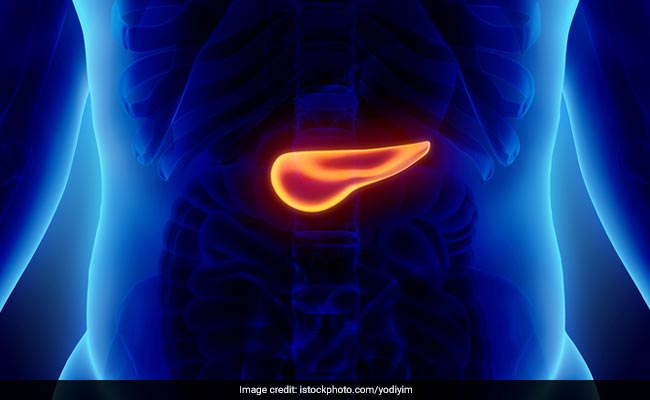Pancreatic Cancer is the most severe form of cancer that can occur in any part of the pancreas, despite the small number of cases.

Pancreatic Cancer is the most severe form of cancer
Pancreatic cancer arises when cells in the pancreas, a glandular organ beneath the stomach, multiply out of control and form a tumor and can spread throughout the body.
Pancreatic Cancer is the most severe form of cancer that can occur in any part of the pancreas, despite the small number of cases. The most common type, adenocarcinoma, begins in the cells that border the pancreatic duct.
The progression of the malignancy dictates treatment options. Surgery, chemotherapy, radiation therapy, or a combination of these treatments may be used to treat cancer.
Which symptoms or side effects are unusual?
Pancreatic cancer is rarely identified early on, since it does not present symptoms until it has migrated to other organs.
- Back discomfort
- Appetite loss/unintentional weight loss
- Jaundice
- Light colored stools
- Dark urine
- Itchy skin
- Diabetes
- Blood clots
- Fatigue
Is a history of Pancreatic Cancer in Families worrisome?
Cigarette smoking, advancing age, chronic pancreatitis, diabetes, heavy alcohol consumption (>3 drinks per day), and obesity are all risk factors for pancreatic cancer. BRCA2 gene mutation, Lynch syndrome, and familial atypical mole-malignant melanoma (FAMMM) syndrome are examples of genetic abnormalities that might raise cancer risk in the family.
Individuals with a family history of pancreatic cancer or other malignancies (breast, ovarian, melanoma, colon) are at an elevated risk of inheriting a gene mutation that puts them at a higher chance of developing pancreatic cancer in addition to these "environmental" risk factors.
Are there screening tests?
A few tests used to diagnose pancreatic cancer include:
Blood Tests- assesses overall health as well as the function of the kidneys and liver.
Ultrasound- detects the presence of a tumor.
X-rays- CT scans take numerous photographs of the inside of the body.
MRI- creates a detailed image of the pancreas and surrounding organs by employing magnetic waves.
PET Scans- infuses little amounts of radioactive substance to highlight tumors.
What are the surgical treatment options?
TNM staging system determine the cancer stage ranging from I to IV. Although there is emerging role of newer techniques, there's a long road ahead to find alternative treatments.
The Whipple procedure involving part removal of the pancreas, the first section of the small bowel (duodenum), part of the stomach and gall bladder, and part of the bile duct, is the most common treatment for early illness.
Chemotherapy employs chemicals to help cancer cells die, intravenously or orally. Chemotherapy and radiation therapy are often used together as a treatment option (chemoradiation).
Radiation Therapy uses high-energy beams to destroy cancer cells and might be received before or after cancer surgery.
Surgery may not be practicable in the case of advanced pancreatic cancer. Symptoms like discomfort and digestive issues are frequently treated.
As a cancer patient, how can one improve their quality of life?
While we often focus on whether surgery is possible or which chemotherapy to administer, we must not overlook the minor, day-to-day details that can have a significant impact on a patient's quality of life. These are some of them:
Physical Activity: It is critical for one's physical and mental health to maintain an active lifestyle. The National Cancer Institute points out that aerobic and/or resistance exercise can help reduce anxiety, depressive symptoms, and exhaustion, as well as improve quality of life, during and after cancer treatment.
Quit smoking: Consult a doctor about quitting methods such as support groups, medicines, and nicotine replacement therapy.
Balanced diet: A diet rich in colorful fruits and vegetables, as well as healthy grains, may help lower cancer risks.
Palliative care: attempts to improve quality of life by reducing cancer symptoms rather than curing it and helps live a better and sometimes, longer life.
Disclaimer: The opinions expressed within this article are the personal opinions of the author. NDTV is not responsible for the accuracy, completeness, suitability, or validity of any information on this article. All information is provided on an as-is basis. The information, facts or opinions appearing in the article do not reflect the views of NDTV and NDTV does not assume any responsibility or liability for the same.
(Dr. Niti Raizada, Director of Medical Oncology and Hemato Oncology, and Transplant Physician at Fortis Hospital)
DoctorNDTV is the one stop site for all your health needs providing the most credible health information, health news and tips with expert advice on healthy living, diet plans, informative videos etc. You can get the most relevant and accurate info you need about health problems like diabetes, cancer, pregnancy, HIV and AIDS, weight loss and many other lifestyle diseases. We have a panel of over 350 experts who help us develop content by giving their valuable inputs and bringing to us the latest in the world of healthcare.














